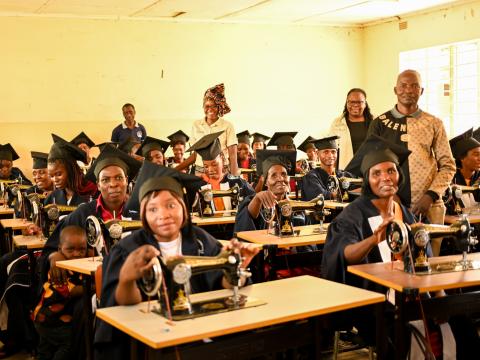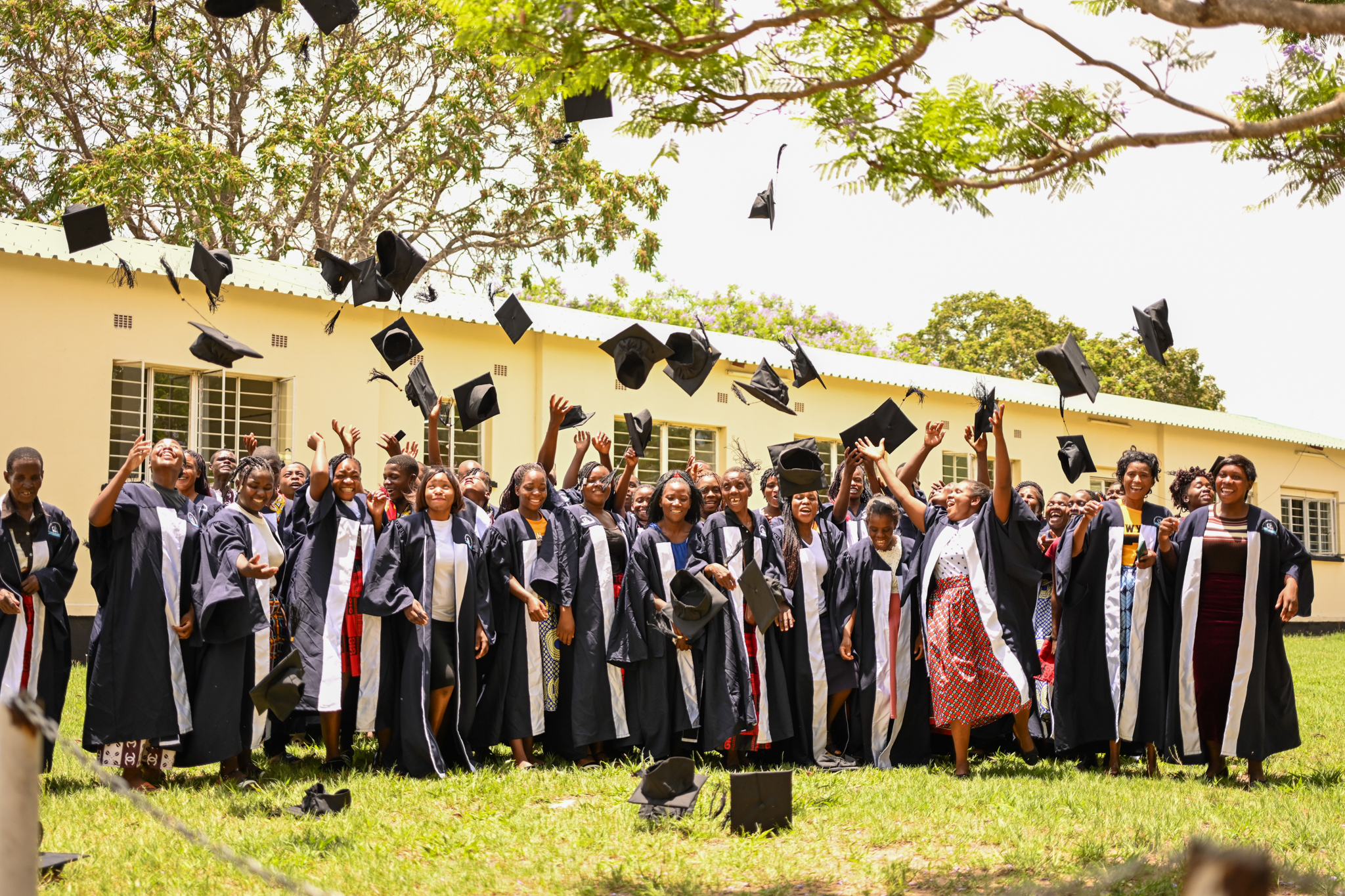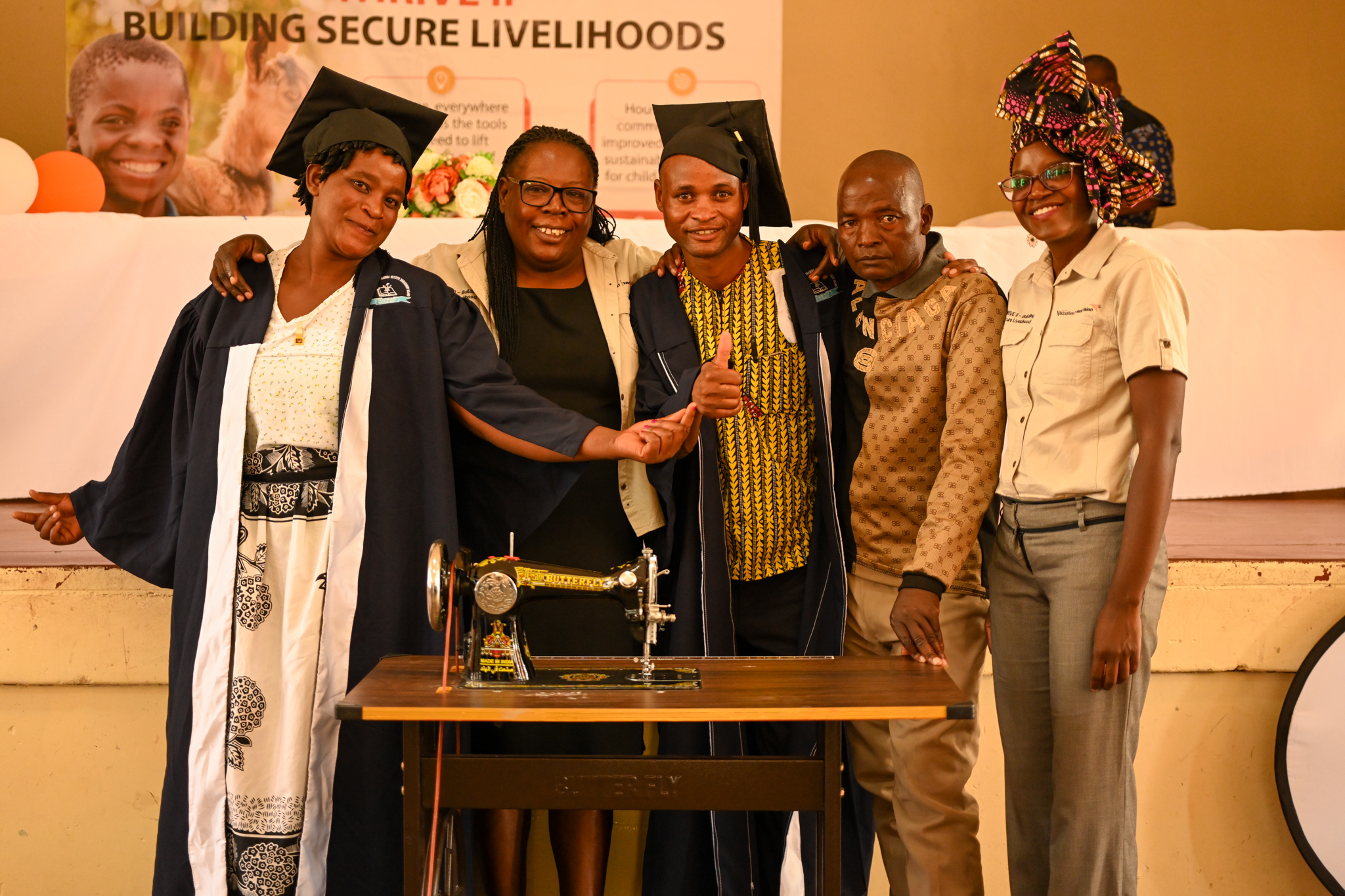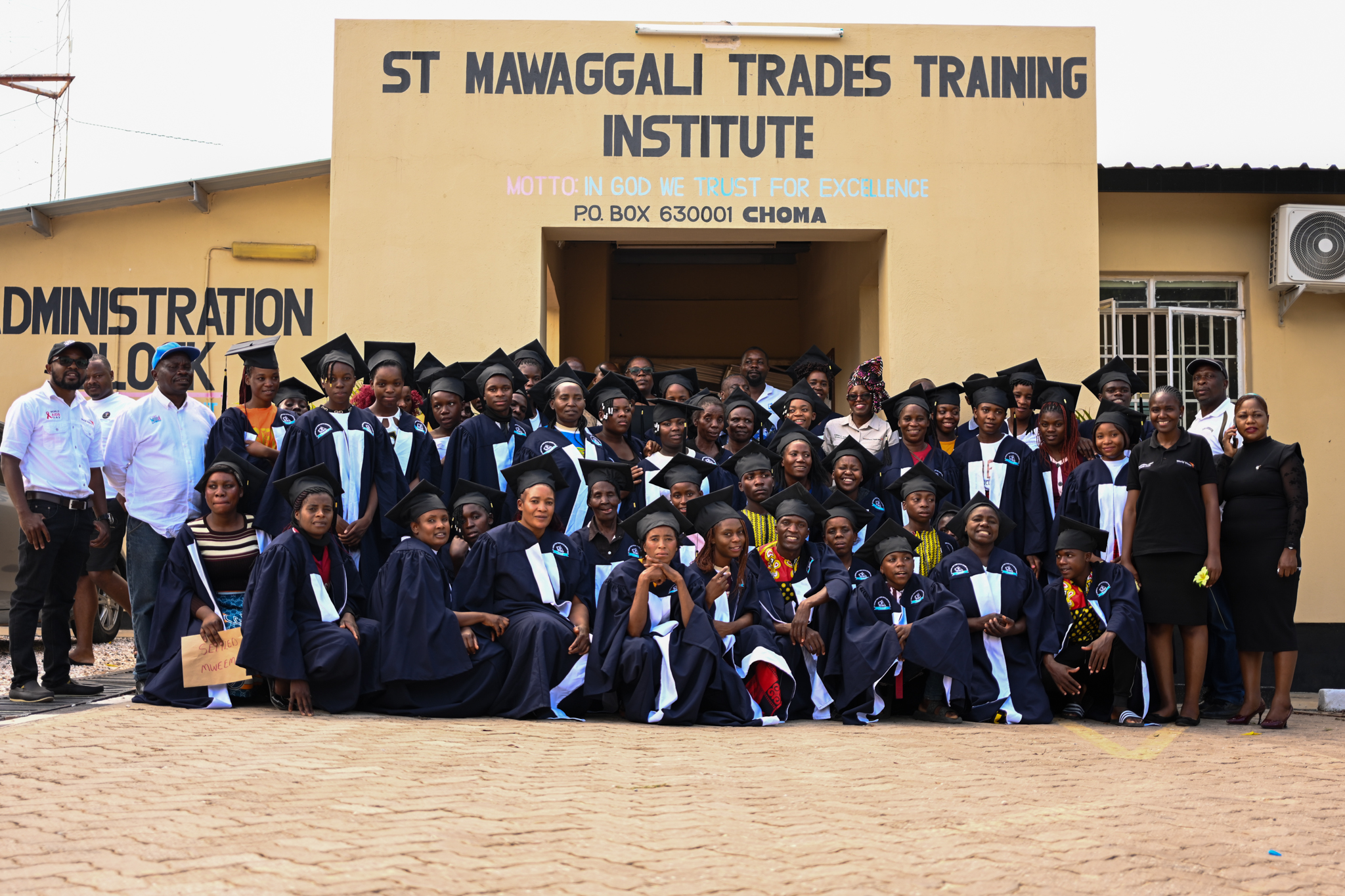From Farms to Fabrics: Empowering Vulnerable Families Through Tailoring Skills

Faced with prolonged drought and the increasing impacts of climate change, communities in Zambia are being forced to adapt to new realities. For many rural families, traditional agriculture is no longer a reliable source of livelihood. World Vision Zambia recognizes this challenge and is helping communities transform their future through the Transforming Household Resilience in Vulnerable Environments (THRIVE) project.
The cornerstone of this initiative is the Tailoring Enterprise Development (TED) program, which equips families with the skills and resources to venture into non-agricultural value chains. The TED program targets members of Saving for Transformation (S4T) groups – households historically dependent on agriculture – promoting resilience and independence.

On December 20, 2024, the transformative power of this initiative was fully demonstrated when 50 community members from the Muchila Area Program in Namwala District attended an intensive fashion and design course held at St. Mawaggali Trades Training Center in Choma District.
Graduation Day: A Celebration of Transformation
The graduation ceremony was full of hope and inspiration. Matrida Mukombo, Senior Grants Manager for World Vision Zambia, highlighted the vision of the program at the event.
“The TED program was created to provide vulnerable households, especially women, youth and people with disabilities, with the skills and resources they need to build a sustainable future,” Mukombo said. Additional sets worth 1,460 CZK per piece, including sewing machines, scissors, fabrics and other necessities. These tools will help you build a new life for your families.”
Deputy director of the training center St. Mawaggali Trades, Thom Chewe Kampamba, praised the initiative's sustainability. "World Vision has given you the knowledge and tools to help you change your life. Now it's up to you to use those skills to create a better future not only for yourself but for your children and communities," he said.
Stories of change
For many participants, the TED program was life-changing. Jane Mwiinga, a mother and smallholder farmer, shared her journey.
“Before this training, I had no idea how to earn an income outside of farming,” explained Jane. "Now I can provide for my family and teach my children that there are many ways to succeed. This program has given me back my confidence and hope for the future."
At just 14, Cornicous, the youngest graduate, gave an impassioned speech.
“This program not only gave me the skill of tailoring, but also the skills to survive life,” he said. "Before, I couldn't see a way out of my struggles. Now I have a goal and a path to support my family and contribute to my community."

Building resilience and independence
The TED program did more than teach participants a craft, it gave them the dignity of independence. By creating new sources of income through tailoring and design, graduates will emerge from the precariousness of rain-fed agriculture. They are building resilience to climate change and securing a better future for their families.
Going forward, the program aims to reach 100 households by 2025 and provide families with the skills and resources to thrive in an unpredictable world.
Through initiatives like TED, World Vision Zambia not only promotes economic resilience, but also restores hope and dignity to the most vulnerable communities. These efforts are a testament to the transformative power of equipping individuals with the tools they need to create lasting change.
